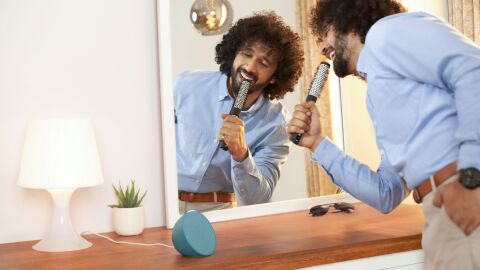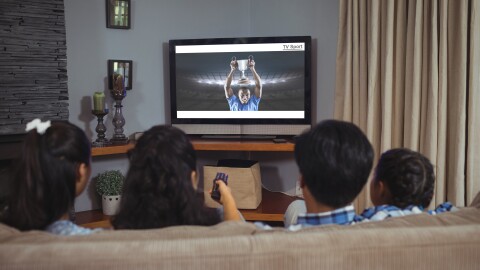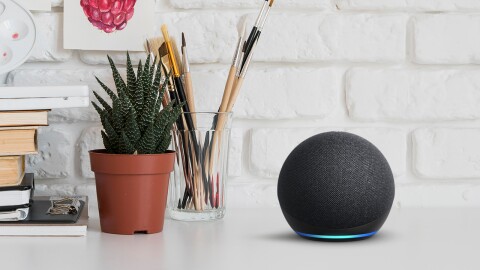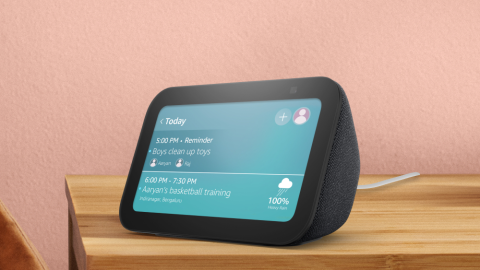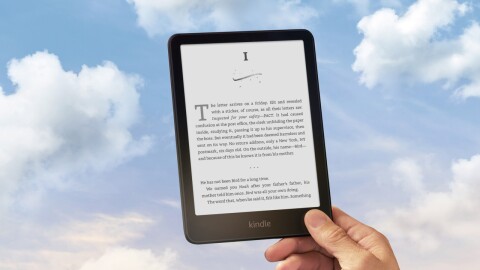Technology has the power to significantly improve quality of lives. This is especially true for people living with disabilities (PWD). Innovations such as the Alexa voice service can further help in reducing the barrier to use technology. Listening to music, placing phone calls, accessing information, controlling smart lights, booking cabs and ordering groceries - virtual assistants are making things simpler and more accessible PWD. We spoke to some avid Alexa users that are PWD, and the stories we heard were heartening.

Dr. Sam Taraporevala, Director, Xavier's Resource Centre for the Visually Challenged (XRCVC), uses an Echo Dot and Echo Plus. He spoke to us about the power of smart devices and meaningful innovations in changing the lives of PWD for the better. Dr. Sam is blind and finds Alexa helpful for him and others with low vision to do daily chores more efficiently and help save time.
Beyond audiobooks, Alexa has been a goldmine for Dr. Sam’s daily tasks and he is already planning to purchase supplementary devices such as the smart plug and IR blaster, among others, to add further convenience to his day-to-day life, such as switching on the geyser, fans, and lights.

“The voice-activated feature is a great way to address a number of challenges for people who can’t move their hands,” says Shishir Bhatnagar, a Nautical Consultant. He has quadriplegia i.e. paralysis below the shoulders due a spinal cord injury. Shishir uses Alexa skills on his Echo Plus to meditate, listen to music and Ramayan Katha and spiritual talks by Sri Sri. His latest discovery on Alexa is a channel for English music called 'Miami beach radio' and he is enjoying listening to ad-free songs.
Nipun Malhotra, CEO, Nipman Foundation (an organisation that works to advocate Rights of Persons with Disabilities), explained how he uses Alexa for entertainment, listening to his favourite songs, and daily medicine reminders. Nipun has arthrogryposis, a condition involving weakness/lack of muscles in hands and legs, and uses a motorised wheelchair to move around independently. He has been using multiple Echo devices at his home to play music, control the TV, set alarms and reminders.
While Nipun maintains that the perfect assistant for a PWD is yet to come by, he agrees that Alexa is definitely a positive step forward in that direction.

It is safe to say that Alexa is becoming an important part of the lives of those who need that extra bit of help. The journey of putting meaningful innovations such as Alexa to use to imrove accessbility for the differently abled has only just begun. It’s still day one!
Accessibility features in Alexa
Echo devices are voice-controlled smart speakers designed entirely around your voice—they are always ready, hands-free, and fast. Alexa is the brain behind Echo—since Alexa runs in the cloud, the service is always getting smarter. You can ask Alexa to answer questions, play music, turn lights on and off, give sports scores, check the weather, and more - with simple voice commands - hands-free.
When you turn on an accessibility feature, your Echo device functions differently, such as different gestures for navigation, change the Vision, Hearing and Speech settings. On Echo devices with screens, you can enable Alexa captioning, magnify the screen, toggle color inversion, and choose between color correction options. You can also enable the VoiceView screen reader to use gestures to navigate the screen and hear spoken feedback about the items you select. Tap to Alexa makes Alexa available to customers who are not able to interact with Alexa via voice, such as customers with speech impairments. We have recently launched a new Alexa feature where you can adjust the speaking rate. Simply say “Alexa, speak slower,” or “Alexa, speak faster” to adjust Alexa’s speech to the preferred pace on any Alexa-enabled device. For more accessibility features, visit here.



